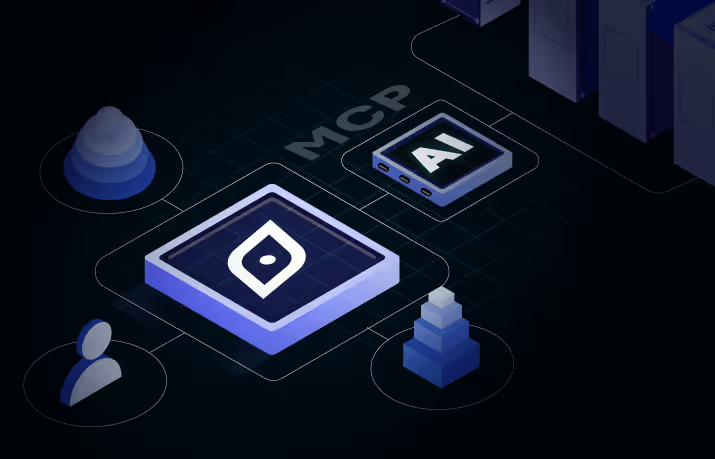Cost-Effective Strategies to Hire Gen-Z and Millennial Talent in Tech
The job market for Gen-Z and Millennial talent is highly competitive in 2023, with a significant demand for skilled professionals in the tech industry. The global digital transformation of enterprises has surged the demand for technology professionals to help them build and maintain their digital infrastructure.
As more and more companies go digital, this demand will continue to grow, especially in software development, analytics, cloud computing, cybersecurity, and AI/ML. Soft skills such as communication, teamwork, problem-solving, and adaptability are equally essential for techies of 2023 to succeed in the workplace.
The Gen-Z and Millennial job market is full of new-age opportunities, but the disconnect between companies and this talent group is a cause of concern. If companies can align themselves with the priorities of this talent, they will be much more likely to attract and retain this talent pool.
What do Gen-Z and Millennial Talent want?
Attracting and retaining Gen-Z and Millennial talent requires understanding their unique values, motivations, and expectations. Here are a few factors that companies can focus on to attract and retain this talent pool:
Competitive Compensation
Only 47% of Gen-Zs and 55% of millennials feel they can comfortably live with their compensation, while 26% and 31% don’t think they will retire comfortably. Companies need to offer competitive compensation for the value of their skills and experience.
Work-Life Balance
Workplace stress and intensity is a major cause of burnout for 46% of Gen Zs and 45% of millennials. Gen-Z and Millennial talent value work-life balance and actively seek companies offering flexible work arrangements, such as remote work and flexible hours.
Career Growth
This talent pool is highly ambitious and wants to grow their careers gradually. 76% of Gen Zers see reskilling as key to their career advancement. Companies that offer career growth opportunities, such as mentoring and upskilling programs, attract young tech talent.
Strong Company Culture
Gen-Z and Millennials value a company culture that promotes teamwork, creativity, and innovation. Companies that foster a positive work environment and offer perks such as team-building activities, company events, and social outings are preferred by this group.
Hi-Tech Workplace
This talent pool wants to work with the latest tools and technologies available in business today. Companies that invest in innovation and provide tech-focused opportunities to this group are more likely to attract and retain them.
Diversity and Inclusion
Companies prioritizing diversity, equity, inclusion, and belonging (DEI&B) are more likely to stand out in 2023. Policies for an inclusive workforce, LGBTQ+ and women talent are critical concerns for this talent pool and aid their decision-making process.
Cost-effective Strategies to Hire Gen-Z and Millennial Talent in Tech
Employer Branding
These generations value the company’s mission and values, social responsibility, and work-life balance. This employer brand can be built by sharing employee success stories, company culture, and employee benefits.
Utilize Social Media
Gen-Z and Millennials are digital natives, and they expect organizations to be present on social media. Organizations can leverage social media to showcase their values, share job openings, interact with potential candidates and build relationships.
Emphasize Company Culture
This talent pool wants to work for a company that fosters a positive work culture, promotes inclusion, and values its employees’ well-being. Therefore, organizations should showcase their culture through their website, social media, and other platforms.
Flexibility
Organizations should offer flexible work arrangements such as remote work, flexible hours, and unlimited time off. 70% of Gen Z seek another job if their employer requires them to be in the office. They are also 77% more likely to click on a job posting that mentions “flexibility.”
Embrace Technology
Gen-Z and Millennials are comfortable with technology and expect organizations to utilize it in the workplace. Organizations can use tools such as video interviews, applicant tracking systems, and online assessments to assess candidates’ skills and qualifications.
Emphasize Learning & Growth
This talent pool values continuous learning and development opportunities. Organizations have to offer data-driven reskilling programs as well as internal mobility that provide employees with opportunities to learn new skills and advance their careers.
Offer Competitive Compensation
65% of Gen Zers feel they’re living paycheck to paycheck. Organizations have to offer competitive packages that align with the market standards to attract and retain top talent. This includes salary and other benefits such as healthcare, retirement plans, and more.
Emphasize Diversity and Inclusion
Enterprises should promote a diverse and inclusive workplace by hiring a global workforce, providing equal opportunities, and creating an inclusive environment. 69% of Gen Zers would apply to a job with a company that has an “ethnically and racially diverse” workforce.
Gamify the Recruitment Process
By incorporating elements such as challenges, quizzes, and puzzles, companies can create a more immersive experience that helps candidates showcase their skills and personality. It can also help derive insights into their problem-solving and decision-making abilities.
Referral Programs
Organizations can encourage their employees to refer candidates and provide incentives for successful referrals. This is one of the most powerful non-traditional recruitment sources in 2023. This can help organizations find top talent quickly and at a lower cost.
The Bottomline
Attracting and hiring Gen Zs and millennials requires a fresh approach to recruitment. These generations value transparency, diversity, and flexibility in their work and are highly tech-savvy. By understanding the unique needs and preferences of these generations, companies can create an innovative and creative workplace culture to drive business success.
Talent intelligence platforms like Draup analyze personality traits, tech skills, soft skills, adjacent skills, employee information, engagement guidelines, and a hiring opportunity index to suggest candidates for a profile. The AI-driven platform’s support for HR leaders with insights helps identify and recruit high-quality, relevant talent, thus reducing the risk of bad hiring in the stressful times of high-volume hiring.










.svg)

















.svg)





.svg)





.svg)
